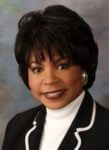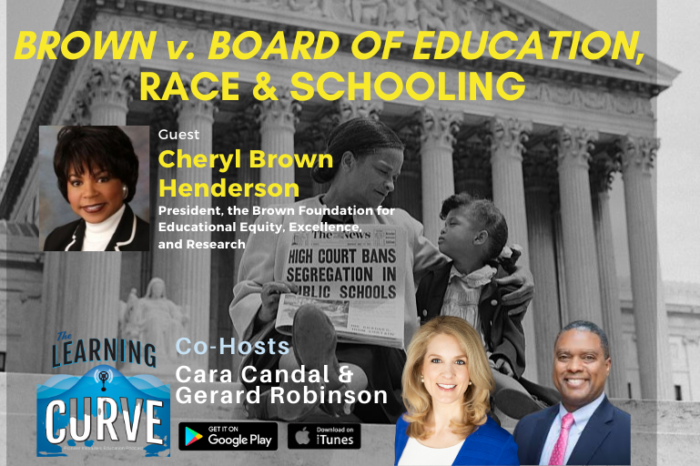Cheryl Brown Henderson, Daughter of Lead Plaintiff in Brown v. Board of Ed., on Race & Schooling
This week on “The Learning Curve,” Cara and Gerard are joined by Cheryl Brown Henderson, president of the Brown Foundation for Educational Equity, Excellence, and Research. She shares her experience as the daughter of the lead plaintiff in the landmark U.S. Supreme Court case, Brown v. Board of Education of Topeka, Kansas, and thoughts on how the historic decision contributed to advancing civil rights in our country. They explore the tragic murder of George Floyd and the ongoing problem of racial inequality, and consider steps that political, educational, civic, and religious leaders should take to address past injustices. Lastly, Cheryl discusses COVID-19’s impact on the important conversation about the wide achievement gaps that have blocked educational opportunity for poor children of color, and how to bridge them.
Stories of the Week: Would a Joe Biden presidency stem the tide of labor unions’ decline in influence? The former Vice President is expected to appoint a union leader to his Cabinet, perhaps in the U.S. Department of Education. This week marks “fall count day,” when schools across the U.S. must submit student enrollment numbers to determine state funding for the next year – but 60 of the nation’s largest districts are reporting significant declines, especially in kindergarten and elementary grades.
Interview Guest:
 Cheryl Brown Henderson is one of the three daughters of the late Rev. Oliver L. Brown, who, with NAACP attorneys, filed suit against the local Board of Education. Their case was appealed to the U.S. Supreme Court on May 17, 1954 and became known as the landmark decision, Brown v. Board of Education of Topeka, Kansas. Cheryl is the Founding President of the Brown Foundation for Educational Equity, Excellence and Research, and owner of Brown & Associates, an educational consulting firm. She has an extensive background in education, business, and civic leadership, having served on and chaired various local, state, and national boards. She earned a bachelor’s degree in Elementary Education, minor in Mathematics from Baker University, Baldwin City, Kansas, a master’s degree in Guidance and Counseling from Emporia State University, Emporia, Kansas, and honorary doctorates from Washburn University and the University of South Florida.
Cheryl Brown Henderson is one of the three daughters of the late Rev. Oliver L. Brown, who, with NAACP attorneys, filed suit against the local Board of Education. Their case was appealed to the U.S. Supreme Court on May 17, 1954 and became known as the landmark decision, Brown v. Board of Education of Topeka, Kansas. Cheryl is the Founding President of the Brown Foundation for Educational Equity, Excellence and Research, and owner of Brown & Associates, an educational consulting firm. She has an extensive background in education, business, and civic leadership, having served on and chaired various local, state, and national boards. She earned a bachelor’s degree in Elementary Education, minor in Mathematics from Baker University, Baldwin City, Kansas, a master’s degree in Guidance and Counseling from Emporia State University, Emporia, Kansas, and honorary doctorates from Washburn University and the University of South Florida.
The next episode will air on Wednesday, October 21st, 2020 at 12 pm ET with Kate Walsh, President of the National Council on Teacher Quality.
Tweet of the Week:
"I don't want their empathy. I want actions for the education of my son." https://t.co/nUbbT5ih80
— Robin Lake now at Threads (@RbnLake) October 11, 2020
News Links:
Unions predict a Great Awakening during a Biden presidency
https://www.politico.com/news/2020/10/09/unions-biden-administration-426880
Pandemic Seems To Be Driving School Enrollment Down, NPR Investigation Shows
Get Updates on Our Education Research
Browse recent episodes:





















